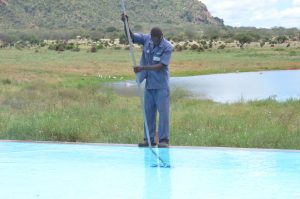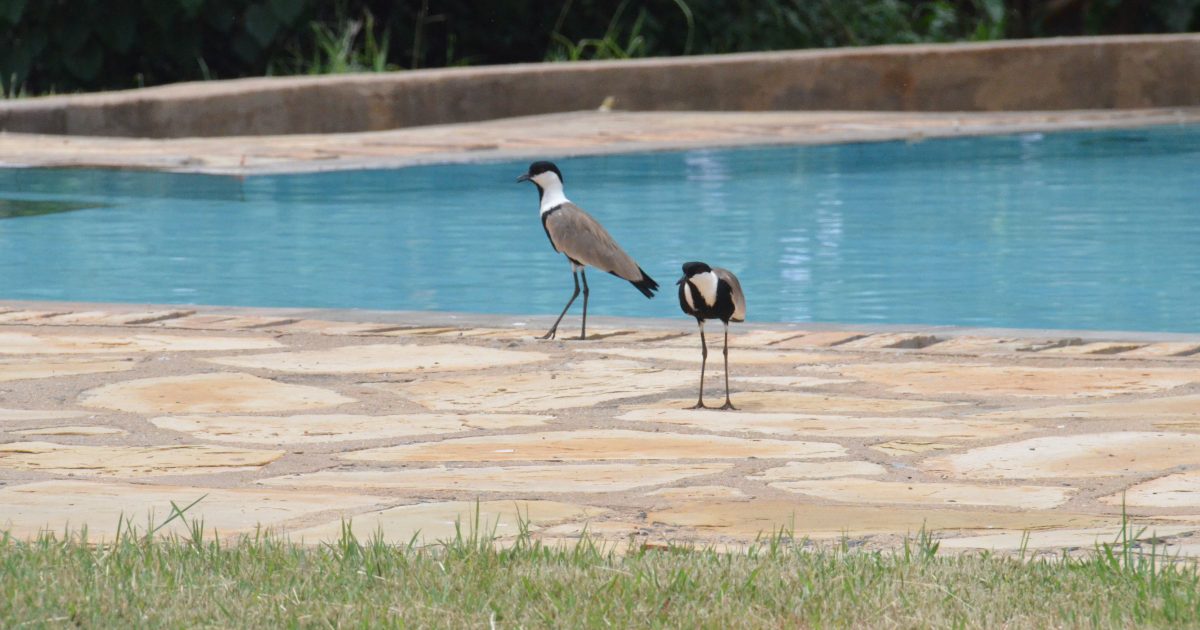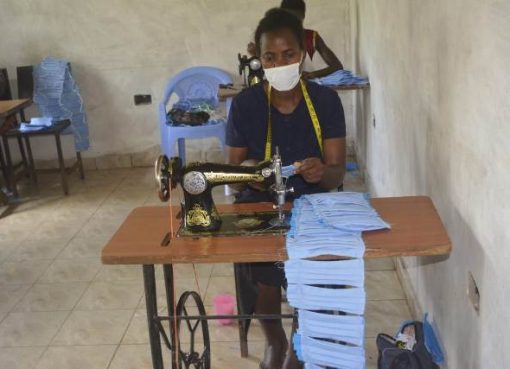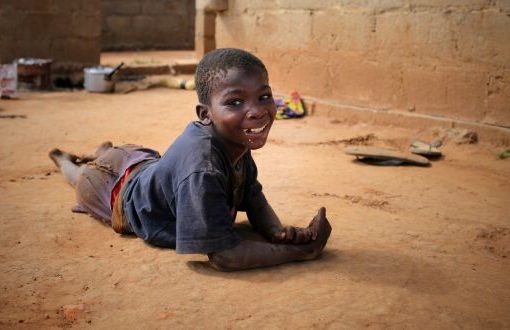It brings about an image of a tourism postcard: a solitary man in faded blue uniform sweeping with a long-handled sieve across the still waters of a shallow pool at a posh hotel, bordering a world-famous national park in Kenya.
Behind him, acres of wild green grasslands, tangled bush and undulating hills stretch out to the skies at the far horizon.
Sadly, this isn’t a postcard. The man is a pool cleaner at the Voi Wildlife Lodge, a Four-star classy Lodge, which borders Tsavo East National Park.
His slow, almost lethargic, moves conceal deep turmoil within. From time to time, he looks up as if seeking human company or God’s divine intervention.
Except for a family of cattle egrets perched on the rims of an elephant watering hole behind him, he is all alone.
From the worker cutting a hauntingly forlorn figure, the suffocating silence around the deserted pool area, usually the epicenter of all fun activities at this establishment in the countdown to Easter weekend, magnifies eerie, sense of crushing emptiness.
The worker is lucky. At least for now, he is among a skeleton workforce retained to keep the basic operations running. Hotels and lodges in the world-famous Tsavo, dubbed as ‘Theater of Wild’, have virtually closed down.
Located within Tsavo National Park and Amboseli, they have sent hundreds of workers away, only retaining a lean workforce to maintain the facilities from falling into disuse.
Even then, fear abounds. Every day dawns with an overwhelming uncertainty of whether even the staff in the lean workforce will not eventually be laid-off until normalcy resumes and tourists return. If ever.
“This is worse than what we went through during the post-election violence in 2007,” admits Mr. David Gaitho, Manager of Sagalla Lodge Hotel near the iconic Tsavo East.

While many sectors convulse from the devastating effects of the Corona pathogen in Kenya, hotel industry in Tsavo, a top tourism hub and famous for her spectacular bush safaris, are amongst the hardest hit.
When the threat posed by Coronavirus hit home, the effects were instantaneous. The streams of tourists, both local and foreign who flock into the Park, abruptly dried up. This was followed by massive cancellations of booking.
Currently, hotels have become ghost structures registering zero business. Cases of walk-in guests have vanished. Parking yards, normally crowded with tour vehicles, remain empty. Cobbled yards have become playing grounds for rock lizards. The telephones at the receptions have stopped buzzing. Human noises and equipment from kitchens, dining rooms, gyms, swimming pools and others areas frequented by guests have disappeared. Emptiness is the new reality facing Tsavo hotels.
Mr. Gaitho is operating with a ‘skeleton’ staff to maintain his facility and ensure the lodge remains clean.
“We have very lean workforce to keep the hotel clean and well-maintained. Otherwise, there is no business at all,” he discloses.
The hoteliers’ agony of closure becomes more acute with the looming Easter Holiday.
Traditionally, all Easter weekends have been ‘harvest time’ for hotels in the region. In fact, Easter is considered the second most lucrative seasons for hotel industry; the first being the Christmas holiday.
Past data on Easter bookings showed hotels reporting 90 per cent occupancy. Thousands of visitors, family members, friends and lovers secure early bookings for rooms.
Others simply drive into park hotels for meals, drinks and game-drives before leaving to seek other wild thrills.
Sometimes, many hotels, overwhelmed by the incoming tourists, employ additional staff to serve the clients. The numbers translate to millions in revenue to the hotels hence revenue too for both the National and the County governments.
With coronavirus threat, the 2020’ Easter is shaping up to be the worst with hotels expected to have zero earnings. Mr. Willy Mwadilo, the Manager for Sarova Saltlick and Taita Hills, says hotels in Tsavo and Amboseli had to close down.
This came from loss of business through booking cancellations, lack of customers and deliberate efforts by hotel management to comply with the Ministry of Health’s directives to halt the spread of the coronavirus.
Mr. Mwadilo, who also doubles as Chair of Hoteliers in Tsavo and Amboseli, says workers were allowed to proceed on their leave during the duration of the shutdown.
“Most of our workers are entitled to annual leave. They had accumulated their days, so they will be away for that period before coming back,” he adds.
Only the most essential of cadres, including security guards, gardeners, pool cleaners and general cleaners have been retained.
In Tsavo West, Severin, Finch Hutton, Ngulia, Kilaguni and Ngulia Bandas have ceased operations. Others like Saltlick, Taita Hills, Ngutuni, Sagalla, Centrim, Aruba Ashnil, Lions Hill, Galdessa and Satao and Man-Eaters in Tsavo East have also closed down.
The ripples of this closure have expanded to other tourism-related sectors. Mr. Livingstone Mghenyi, Director of Mlilo Tours and Safaris, a tour company, said he has closed shop. He says concerns over the safety of his workers and the hotels’ closure informed his decision.
He says Covid-19 outbreak compromises his services in terms of interactions with customers, particularly the foreign visitors.
“Tour guides and drivers cannot engage properly with the requirements of maintaining a safe distance between us and visitors. We had to stop our operations,” he notes.
While hotels struggle to cope with Covid-19 outbreak, others are struggling with the additional nightmarish scenario of toxic publicity linked to the disease. One such hotel is Voi Wildlife Lodge.
Priding herself with magnificent rooms, including Presidential Suites amongst other spectacular facilities, Voi Lodge has found herself in the eye of a nasty publicity storm after disclosures that a French tourist who later tested positive had spent a night in one the hotel’s customized tents at the Manyatta Camp.
Sixteen workers feared to have come into contact with the tourist were placed under a 14-day self-quarantine as the management sought intervention from the Government and Public Health officials. Luckily, none of the sixteen tested positive.
Mr. Douglas Mkala, Operations Manager at the Voi Wildlife Lodge, terms as misleading, the report that the hotel closed down after the confirmation of Covid-19 case. He admits that the tourist spent a night at the Lodge before going to Diani.
“We alerted the public health officials that he had been here. Since then, we have taken very robust steps to ensure safety of our clients and staff,” he said.
He explained that Voi Wildlife Lodge has three distinct and separate units namely Manyatta, Baobab and Acacia. The French tourist was at Manyatta Camp which has since been closed for renovations.
“Our other two units; Acacia and Baobab are still open. Manyatta will open in May,” he said.
Despite such assurances, the truth is different. Like all other hotels in the region, the business in this classy lodge remains nonexistent; dining halls, pools and other areas remain virtually empty. There are reports that the lodge is due to close down for a month. How long it will take for this industry to recover in post-corona era remains unclear.
Still, the hoteliers remain hopeful. They say that despite the massive setbacks caused by this pandemic, the industry will eventually pick after the country everything stabilizes.
“This is a resilient sector. We hope to bounce back after all this is over,” says Mr. Gaitho.
For players in tourism sector, ‘hope springs eternal in human breast’ is no longer an abstract aphorism. It is the only way to clutch to fleeting hope that good days will one day return. At a time when torrents of bad news, pessimistic outlook and gloomy predictions have become our new reality, any silver lining that promises a return to the pre-corona days will find a home in the hearts of these hoteliers.
By Wagema Mwangi





